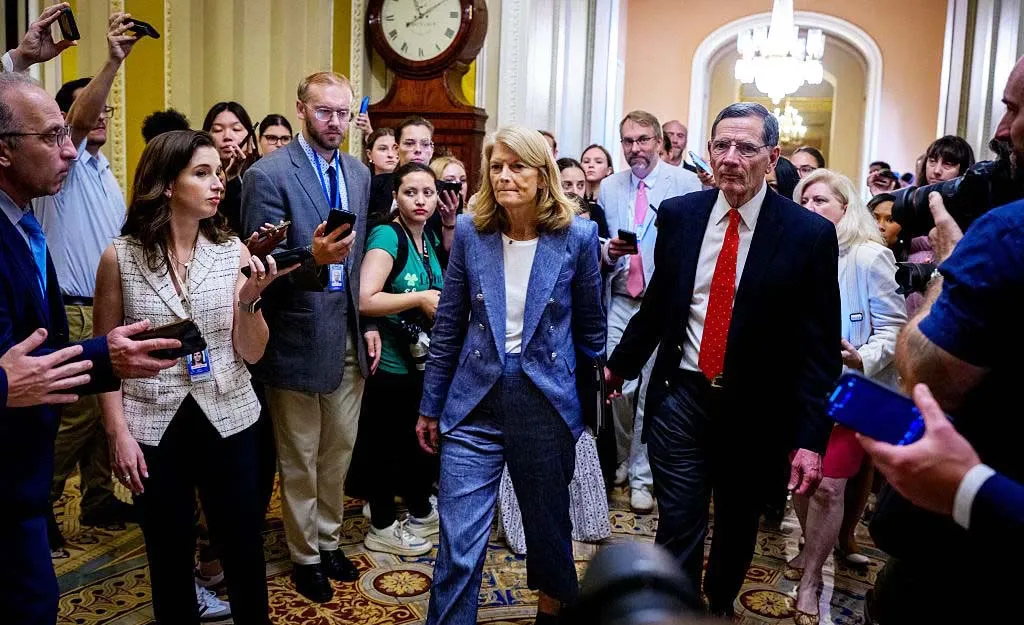
Sen. Lisa Murkowski (R-AK) and Sen. John Barrasso (R-WY) in the Capitol after the Senate vote-a-rama on July 1.
Photo: Andrew Harnik/Getty Images
The Senate version of the "Big Beautiful Bill" could come up for a vote as early as today in the House.
House passage is the last hurdle before the bill reaches President Donald Trump's desk for his signature.
The Senate-approved Medicaid cuts go deeper than the original $715 billion estimated in House passage of the bill in May. The Senate version makes $930 billion in cuts over a decade to Medicaid, Medicare and the Affordable Care Act, according to CBO estimates published by CBS. This compares to nearly $800 billion in cuts to Medicaid, Medicare and the ACA as originally passed by the House.
Vice President J.D. Vance cast the tie-breaking vote in the Senate as three Republican senators voted no. GOP Sen. Rand Paul of Kentucky voted against the bill because it would increase the federal deficit by $270 billion next year, he said, according to The Hill.
Republican Sen. Susan Collins of Maine voted against the bill due to its cuts to Medicaid and the effect that would have on rural hospitals. At least two in her state are at risk for closure due to Medicaid cuts, among 55 other rural hospitals nationwide.
Lisa Murkowski, R-Alaska, only voted for the bill after she and Collins pushed for more money for the rural hospital fund. The Senate agreed to increase the amount in the Rural Health Transformation Education Program from $25 billion to $50 billion over five years.
The fund gives a base amount to states to support smaller hospitals.
That and other funding would result in $200 million to $300 million per year to the state, which could prevent five Alaska hospitals – in Valdez, Seward, Kodiak, Cordova and Ketchikan – from closing due to cuts in the bill, according to the Alaska Beacon.
WHY THIS MATTERS
The National Rural Health Association is urging the House to reject the Senate version of the bill.
"The National Rural Health Association (NRHA) is extremely concerned by the Senate's cuts to provider taxes and state-directed payments which directly support rural providers and facilities," said CEO Alan Morgan by statement. "Further, NRHA is concerned that the Rural Health Transformation Program, dedicated to offset the Medicaid cuts on rural communities, will fall short of addressing the other provisions in this legislation. We urge our partners in the House to reject these massive cuts and protect rural healthcare."
THE LARGER TREND
The Senate bill requires Medicaid beneficiaries to work or be in school at least 80 hours a month and has twice-a-year eligibility checks.
The steep cuts to taxes levied by Medicaid expansion states on hospitals and other providers remained in the bill despite objections by some Republicans in the Senate and House, though they will now be delayed by a year, to start in 2028, according to The Hill.
The House measure aims to lower federal costs by freezing states' provider taxes at current rates and prohibiting them from establishing new provider taxes.
But their Senate counterparts want to incrementally lower provider taxes from 6% to 3.5% by 2032 in states that expanded Medicaid under the Affordable Care Act, the report said.
Email the writer: SMorse@himss.org